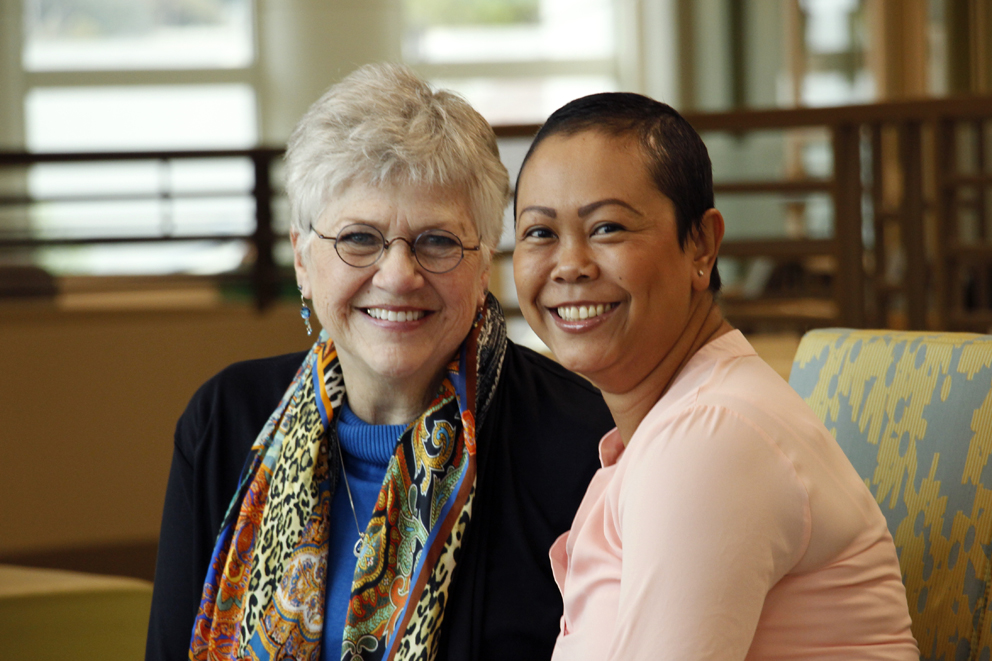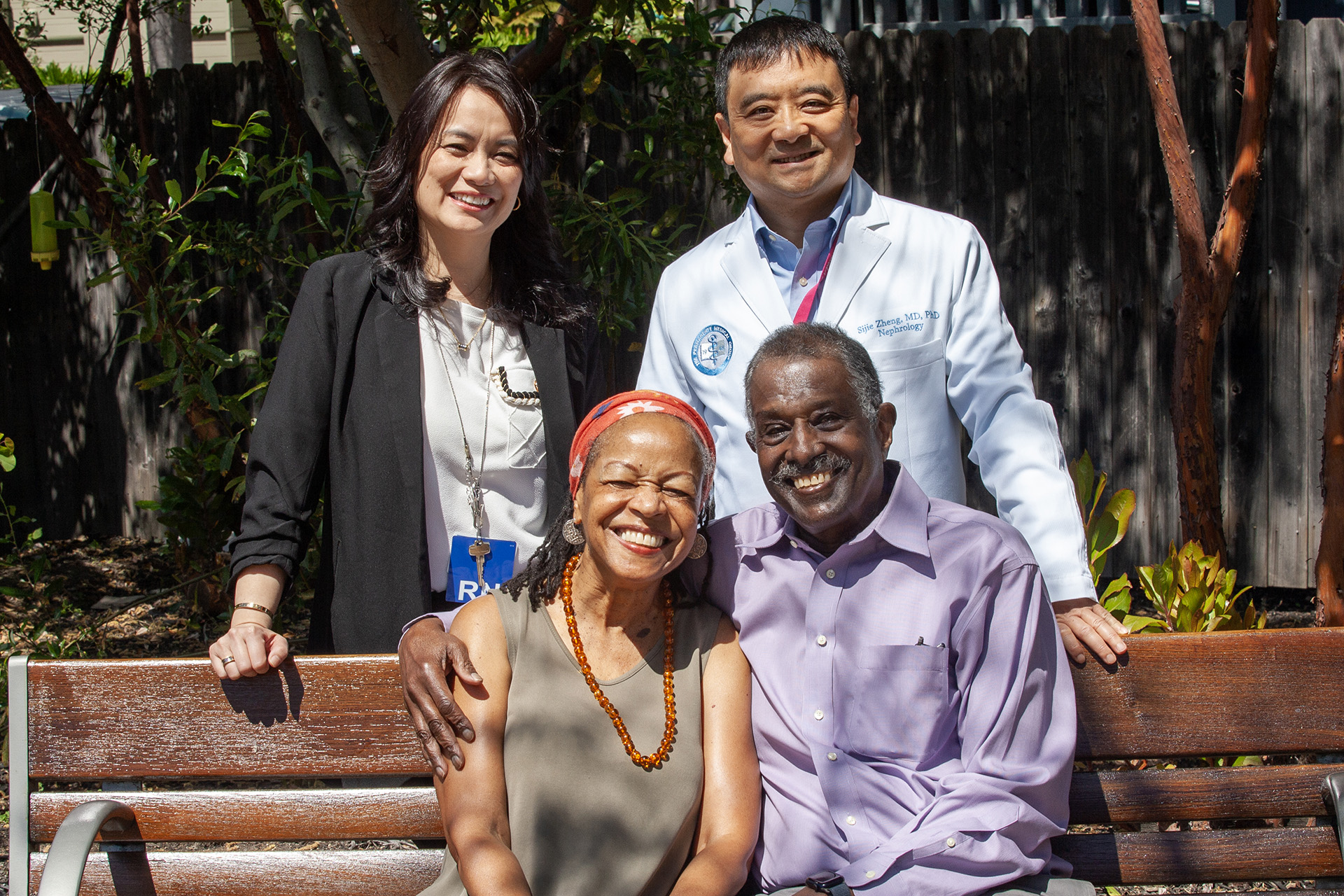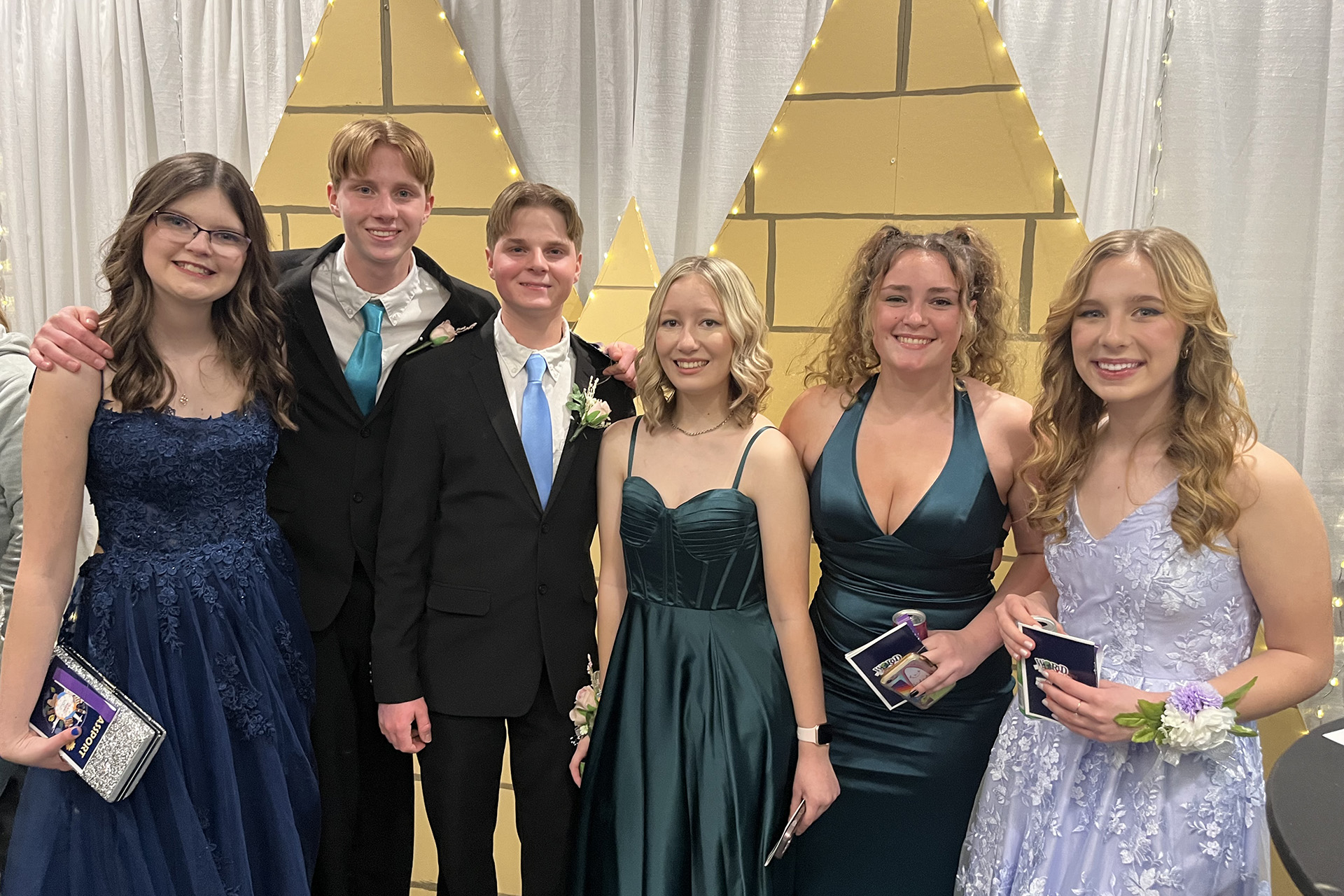Kaiser Permanente patients who have completed breast cancer treatment use their experience to provide emotional and practical support to newly diagnosed women. Pictured above, Sophea Real (right) with her peer navigator Judey Miller.
When 36-year-old Sophea Real was diagnosed with Stage 3 breast cancer last summer, she had the unfailing love and assistance of her family. But she said the support she received from the Kaiser Permanente Oakland Breast Care Center peer navigation program was different — like a light in the darkness.
Real is a licensed vocational nurse at Kaiser Permanente San Francisco and the mother of 2 school-aged children.
“My husband and my family were amazing, but they had never been through breast cancer,” she said. “I felt I could ask my peer navigator anything. Questions like, ‘How do I tell my kids?’ ‘What’s the treatment process like?’ ‘Is chemotherapy scary?’”
Peer navigators are volunteers who have completed their own cancer treatment and are trained to offer newly diagnosed breast cancer patients practical and emotional support. They can help problem-solve, arrange additional resources, or accompany patients to doctor visits, surgery, or treatment. And perhaps most important, they offer hope.
“They’ve been through cancer, and they’re still alive. They’re there to help us get through it, too,” Real said.
Offering Support, Building Trust
The Kaiser Permanente Oakland Medical Center’s peer navigation program is based on the Kaiser Permanente program in South Sacramento, which started in 2013. The Oakland program has 9 navigators who helped 17 women in 2016 and the South Sacramento program now has 15 navigators who assisted 30 women last year.
Several other Kaiser Permanente medical centers across the country are also planning or offering in-person or online peer support for patients dealing with a variety of medical conditions and procedures, including post-partum depression, organ transplant, and traumatic brain injury.
East Bay Breast Care Center Director Veronica Shim, MD, worked with a group of 5 breast cancer survivors to launch the breast cancer peer navigation program at Kaiser Permanente Oakland in 2014.
“For patients, there’s something very powerful about speaking with someone who had a similar diagnosis and received treatment at the same medical center,” Dr. Shim said. “They feel supported by the peer navigators every step of the way, and I think they feel a deeper trust in their clinicians and the health care system.”
Dr. Shim added that research shows patients who feel supported live longer. She pointed to a recent study by Candyce Kroenke, ScD, Kaiser Permanente Division of Research, that found breast cancer patients with strong social networks have significantly lower breast cancer death rates and lower rates of recurrence than women who are more socially isolated.
Healing for Navigators, Too
The Kaiser Permanente peer navigators who provide social support for breast cancer patients say they also benefit.
After Dexter Borrowman, Kaiser Permanente director of National Service Quality, was diagnosed with breast cancer in 2012, she studied the peer navigation program in South Sacramento and helped launch the project in Oakland. She has formally navigated 7 women with breast cancer and acts as a champion to encourage the development of other Kaiser Permanente peer navigation programs across the country.
“I’ve been able to take what felt like trauma and use it for a higher good. There is tremendous healing for the person I’m navigating, and it’s healing for me, too,” Borrowman said.
Oakland peer navigator Judey Miller has had a similar experience. She described the volunteering she does at Kaiser Permanente Oakland with newly diagnosed women as something that “feeds me in a deep way.”
After the retired university administrator completed her breast cancer treatment in 2010, she worked with the team that launched the Oakland program. She now volunteers as a peer navigator and helps support a community of breast cancer patients and survivors at the medical center.
“I am so grateful that Kaiser Permanente saved my life,” she said. “This is one way I have to give back.”





This Post Has 5 Comments
I would love to be a peer navigator. I finished my treatment last summer (2017). I think supporting women through the breast cancer journey is very important.
AWESOME!! I love working for an organization that always has the patient at the center of focus. Programs like this develop through the physicians and staff who work for KP. BRAVO!!
I am a breast cancer survivor and I think anyone who has gone through this horrible ordeal becomes a source of support and resource for newly diagnosed cancer patients. I happily get referred to friends and friends of friends to talk to , give support and give information…. paying it forward…
This is a great program to hear about. I am a cancer survivor, and there is nothing like support from someone with experience. I had the great opportunity to get the support from a close friend who also is a cancer survivor. She made me feel better, at ease with the whole situation I was dealing with. I have 4 small children and a husband, and my only thought was them. So this program you have going is a great resource for patients who are newly diagnosed and have a lot of worries. Thanks to Kaiser again for all the support.
What a great support system that was offered. Sophea, I am so glad you had this in your corner. Stay strong.